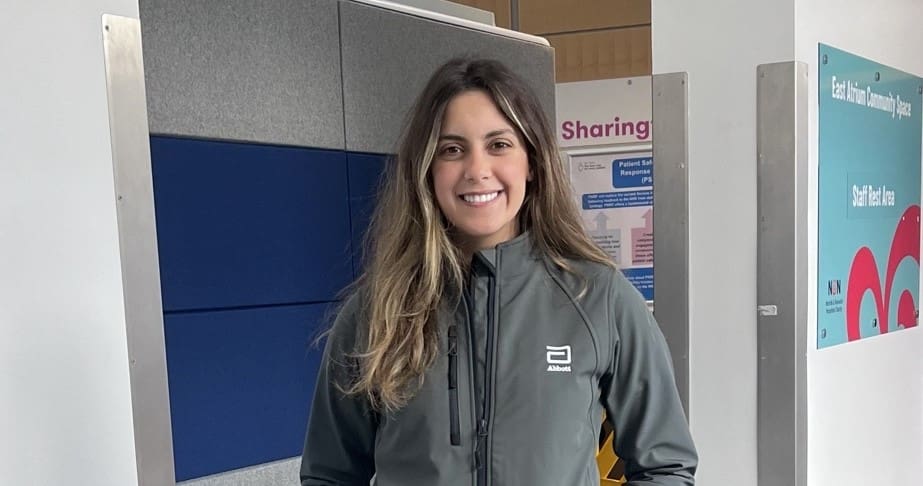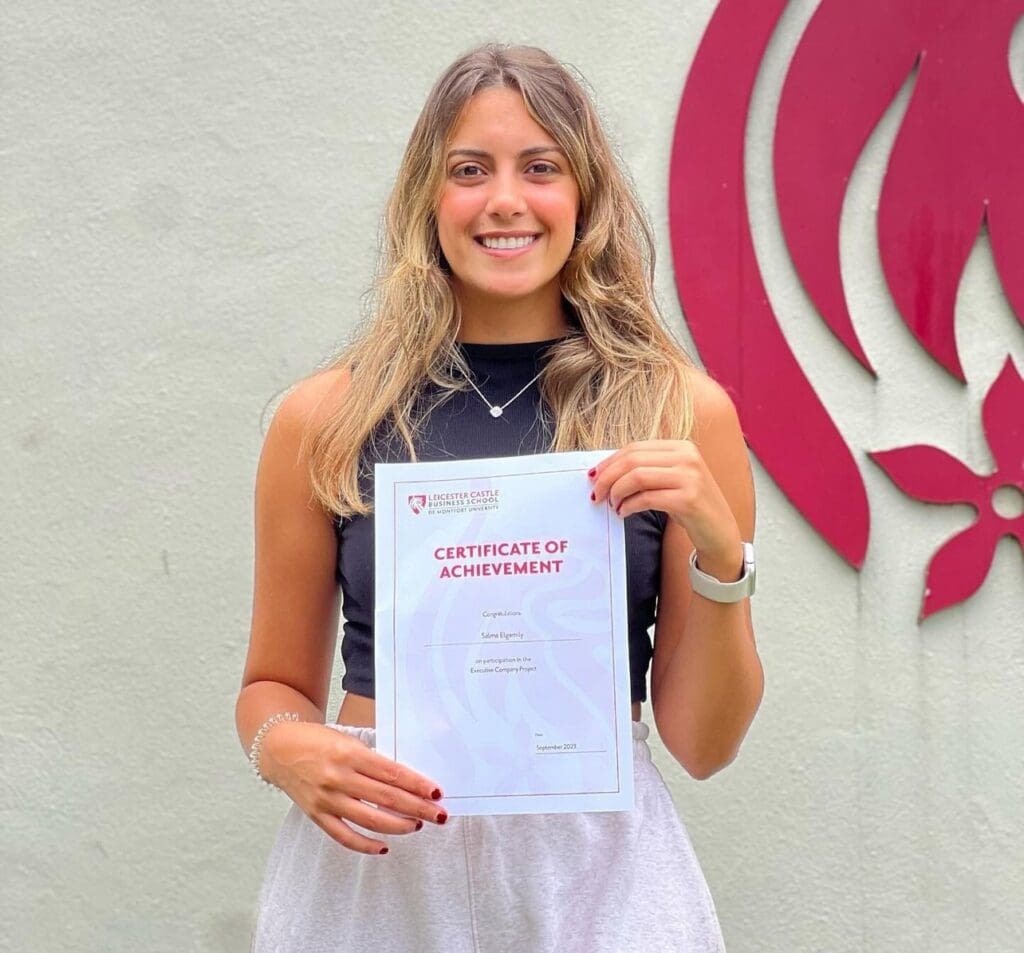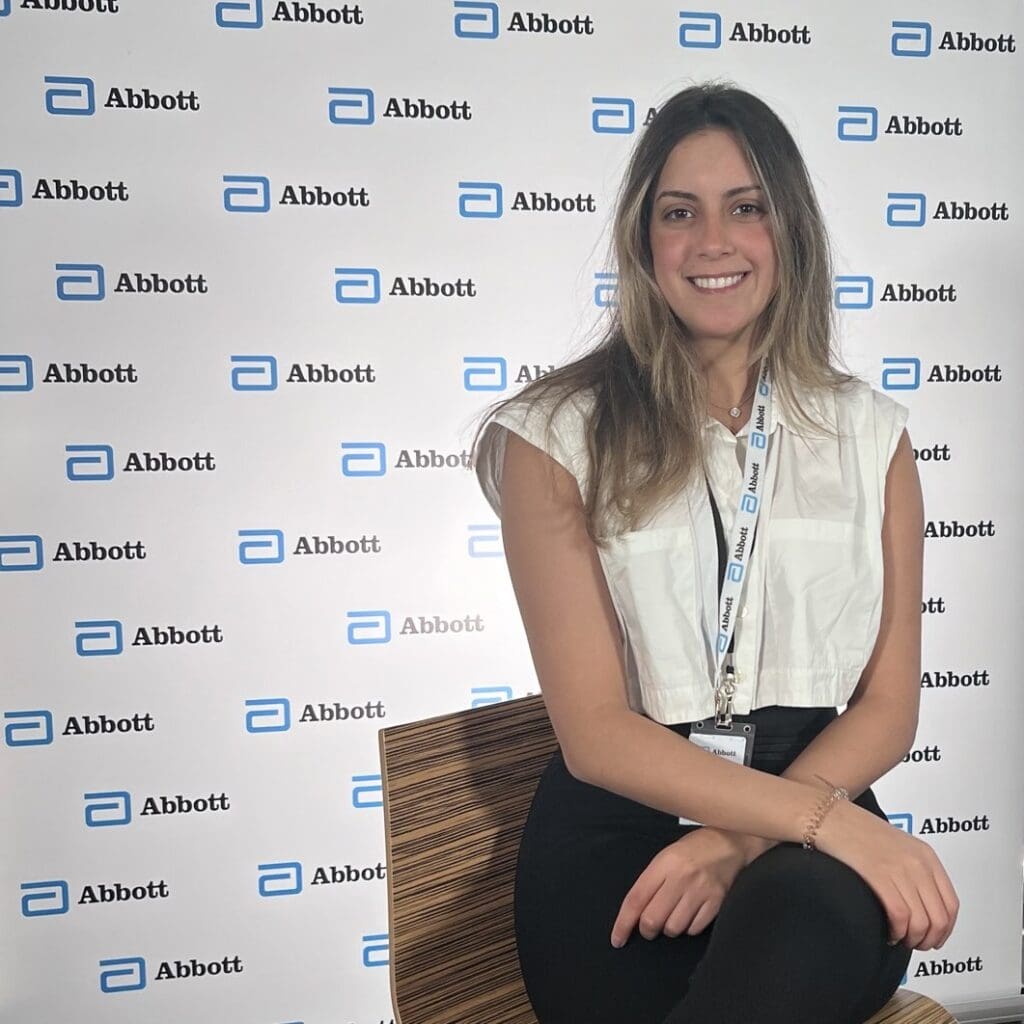Spotlight on life of a Biomedical Engineer in the UK
This article features Salma Elgamily who is working as a Biomedical Engineer in the UK. Salma is from Egypt and has a background in Biomedical and Medical Engineering. She has recently graduated from De Montfort University with an MBA as well as having project management and sales marketing diplomas. Salma is a Field Service Engineer for Abbott working on haematology equipment.


This is UK Life as an Egyptian Biomedical Engineer
Background
Have you always liked knowing how things work?
I’ve always been fascinated and passionate for learning how things work. So, this has been a driving force in my career and motivates me to continually seek new knowledge and challenges in my life and field. I always approach things in order to gain knowledge and am curious about how things work. As well, I enjoy learning from others by asking questions to understand different techniques.
Have you always liked fixing things?
As a child, I enjoyed fixing simple household items like toys or appliances. For example, I remember taking apart a broken toy car to understand its mechanism and then successfully putting it back together. This sparked my interest in understanding and fixing things from an early age. In addition, I was always watching and helping my father fixing things around our home.
Were there any childhood interests which were a factor in deciding to study engineering?
Absolutely, my childhood interests played a significant role in my decision to study engineering. I always enjoyed problem solving, especially when it involved mathematical concepts and creative thinking. These interests naturally led me towards biomedical engineering, where I could apply my skills to innovate solutions to the real world. I chose biomedical engineering because I always wanted to make a meaningful positive impact on people’s lives.
Inspirations
Was there a particular person who inspired you to study biomedical engineering?
While there wasn’t a specific person who directly inspired me to study biomedical engineering as it was a very new field in Egypt, I was influenced by various individuals throughout my life. I was inspired by doctors and healthcare professionals who dedicated their careers to improving patient care and advancing medical technology. Additionally, I admired engineers who worked in the biomedical field and contributed to ground-breaking innovations that saved lives and enhanced quality of life. Their dedication and impact motivated me to study biomedical engineering where I could combine my interests in biology, medicine, mathematics, and engineering to contribute to healthcare advancements.
Who do you consider to be one of the greatest engineers or scientists ever?
Marie Curie, she is a physicist and chemist who conducted pioneering research on radioactivity and was the first woman to win the Nobel Prize.
Biomedical Engineering
Why did you decide to study biomedical engineering rather than a different type of engineering?
This field offers the opportunity to apply engineering principles to develop innovative medical devices, diagnostics tools, and healthcare systems that can enhance patient care and quality of life.
Egypt has a long tradition of excellence in the medical field, why do you think this is?
Egypt’s tradition of excellence in the medical field can be attributed to several factors. One key factor is the rich history of ancient Egyptian medicine, which laid the foundation for scientific inquiry and medical practice. Ancient Egyptians were pioneers in various medical practices, including surgery, pharmacology, and anatomy.
Furthermore, Egypt’s strategic location at the crossroads of Africa, Asia, and Europe facilitated the exchange of medical knowledge and ideas throughout history. This cultural diversity and openness to learning from different traditions have enriched Egypt’s medical heritage.
In modern times, the dedication and expertise of Egyptian medical professionals, such as Professor Sir Magdi Yacoub, have contributed significantly to the country’s reputation in the medical field. Magdi Yacoub is a world-renowned cardiothoracic surgeon who has made ground-breaking contributions to cardiac surgery and transplantation. His pioneering work, along with that of many other Egyptian medical professionals, has elevated Egypt’s standing in the global medical community.
Overall, Egypt’s long tradition of excellence in the medical field is the result of a combination of historical legacy, cultural exchange, and the tireless efforts of dedicated healthcare professionals like Magdi Yacoub.


Equipment used as a Biomedical Engineer in Egypt and the UK
What are the types of equipment you work on (and have worked on)?
I’m working on haematology equipment in my current role. However, I have worked on:
Endoscopies,
Operating Room Equipment,
Monitors and
Radiology equipment
in Egypt.
What has been the most difficult piece of equipment you have ever worked on?
MRI and PET-CT
Is there a piece of equipment/instrument you would you like to work on in future?
I love haematology because it is interesting and allows me to learn something new every day. I am learning so much. Possibly I’d like to get my hands on cardiac devices in the future.
Moving countries as a Biomedical Engineer from Egypt to the UK
You moved from Egypt to the UK. How quickly did you become accustomed to the different accents when listening to English?
It took a bit of time to become accustomed to the various accents in the UK after moving from Egypt. Initially, there was some difficulty understanding certain accents, particularly those with strong regional variations. However, with exposure and practice, I gradually became more comfortable and more proficient in understanding different accents. Overall, it’s a gradual but achievable process with exposure. And of course, I’m still learning and exploring every day.
What helped you to settle into life and work in the UK?
Building a network of friends, and also colleagues provided valuable support and guidance. Professional development helped too as I was always keen and eager to achieve a goal.
What are the biggest differences in the working environment between the UK and Egypt?
The concept of work-life balance, flexible working arrangements, such as remote work and more flexible hours.
What advice would you give to someone who has just moved countries to work?
Be patient and open-minded because moving to a new culture takes time. Also, be open to new experiences and ways of doing things. As well, build a support network, communicate, and explore more. Lastly, be prepared to adapt to new situations and challenges so be flexible.


Typical week as a Biomedical Engineer in the UK
What’s your typical week like?
I maintain a structured work schedule consisting of five days dedicated to professional responsibilities and tasks. Following work hours, I often visit the gym to maintain physical well-being and foster a healthy lifestyle. Additionally, during leisure hours, I allocate time for social activities, such as meeting friends or going to a volleyball match, swimming, or shopping. This balanced approach ensures both productivity in the workplace and fulfilment outside of it.
How much of your time is spent ‘hands on’ and how much doing other things?
As a biomedical engineer, the amount of “hands-on” versus other activities can vary depending on the specific tasks and projects at hand. Some days may require long hours, possibly 10 hours of focused work, particularly when tackling complex problems or meeting tight deadlines. However, there are also days where the workload may be lighter or less demanding, allowing for a more balanced schedule. During these times, I may spend around 4-5 hours on hands-on engineering.
Who gives you support when you need it?
My family and close friends genuinely care and provide positive energy at all times.
What are your tips for the best ways to share knowledge and experience with other engineers?
Sharing knowledge and experience is essential for professional development. I would say create a supportive and good environment where colleagues feel comfortable asking questions and seeking guidance. Presentations and workshops are great tools too. Establish a feedback loop where engineers can provide constructive feedback to each other, facilitating continuous learning and improvement. Always stay updated by communicating with each other.
Building relationships with customers
How do you build relationships with customers?
I always begin by introducing myself and my role within the company. Then I clearly communicate my willingness to assist them and address any questions or concerns they may have. I listen actively to the customer’s needs, objectives, and challenges, as this demonstrates empathy and shows that I value their perspective. As well, I offer insights, solutions, and recommendations. I make sure that I am transparent and honest to establish trust. Lastly, I always follow up with them after any initial interactions to ensure they are satisfied with the service provided.
How do you develop the relationship so that it becomes more than just ‘supplier’ and ‘customer’?
I would say the most important thing is being transparent and honest with them so I can build trust. In addition, I am responsive to my customer’s inquiries, requests, and concerns, and always promptly follow up with them. I believe after-sales service is more important for building rapport than anything.
How do you keep everything calm when a job is very urgent?
Prioritise tasks that need to be addressed immediately and focus on completing these. Instead of focusing on the urgency of the job, I focus on identifying solutions, staying organised, taking breaks, and staying flexible.


Most challenging part of the job as a Biomedical Engineer in the UK
What do you find most challenging when you are working – technical side or people/customers?
The technical side is more challenging due to the complexity of solving problems and staying updated with rapidly evolving technology.
What has been your most challenging job to date?
Being a field service engineer is challenging as you are always trying to find the errors, trying to be more creative, keeping technical thinking going and sometimes it all takes a very long time.
MBA
You have recently completed an MBA. How is this helping you in your role as a field service engineer?
My MBA has provided me with several benefits as a field service engineer.
Business Acumen
Business Acumen by understanding of business principles, including finance, marketing, and strategic management. This knowledge helping me to make more informed decisions and contribute to business discussions and strategies.
Leadership and Management
Leadership and Management skills which are essential for the role to coordinate service operations, interact with customers, and management skills.
Problem solving
The MBA enhanced my problem solving and analytical thinking skills by exposing them to real world business challenges and decision-making frameworks.
Overall, holding an MBA opens additional career advancement opportunities for biomedical engineers, such as transitioning into management roles, pursuing entrepreneurial ventures, or exploring opportunities in other industries where business skills are highly valued.
Making a future star
Apart from a strong technical background, what are the four most important skills for a field service engineer to have?
I think there are four which are:
Problem-solving abilities
Communication skills
Technical proficiency
Time management
How do you think more women can be encouraged to work as medical field service engineers?
I think there are two main areas – education and having role models and mentors.
Education
Schools, universities, and training programmes can engage in targeted outreach efforts to attract more women to STEM fields and specifically to biomedical engineering and field service engineering. This can involve organising workshops, career fairs and informational session to raise awareness of the opportunities available as well as highlighting successful women in the field.
Role models and mentors
Having visible role models and mentors who are women in medical field service engineering can inspire and support aspiring female engineers. So, I would recommend companies and professional organisations provide mentorship programmes and networking opportunities to connect women in the field with experienced professionals who can provide guidance, advice and support throughout their careers.


Further reading
Life in Biomed working for the best for new-borns
Life of a woman Biomedical Engineer and Trainer
Successful life of a Hospital Ship Biomedical Engineer
How to support your field engineer team


Responses